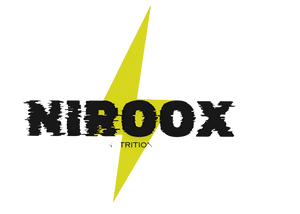Best protein powder for muscle building 2025 – Your complete shopping guide
🧬 Scientifically tested: The best protein powder for muscle building 2025
Introduction
Building muscle doesn't happen by chance—it requires more than just discipline in the gym. Without the right nutrition, especially adequate protein intake, success is often elusive. Protein is key to recovery, muscle growth, and performance improvement. But which protein powder is truly recommended in 2025? In this article, you'll find a well-founded, scientifically supported analysis of the best protein powders for effective muscle building.
Why protein is so important for muscle building
Proteins consist of amino acids, the building blocks of our muscles. During intense training, small tears occur in muscle tissue, which are repaired and strengthened by protein. Studies (Phillips et al., 2009) show that a protein-rich diet significantly increases muscle protein synthesis. For athletes, this means faster recovery, more effective muscle building, and protection against muscle loss – especially during dieting phases.
What types of protein are there and when are they useful?
Whey protein comes from milk and is particularly quickly digested. Ideal for consumption immediately after training.
Casein is a slow-digesting milk protein – perfect before bedtime as it supplies the body with amino acids for hours.
Plant-based protein powders such as pea, rice, or hemp protein are a good choice for vegans or people with lactose intolerance. They offer moderate digestion speed and are often well tolerated.
➡️ Whey protein will remain the gold standard in 2025 because it contains all essential amino acids and allows for extremely rapid absorption in the body (Tang et al., 2009).
How much protein does your body need?
The International Society of Sports Nutrition (ISSN, 2017) recommends a daily intake of 1.4 to 2.0 grams of protein per kilogram of body weight for active athletes. During intensive muscle-building phases, the requirement can even rise to 2.2 g/kg.
For example, an 80 kg athlete should consume approximately 112 to 160 grams of protein daily. Protein shakes are a simple and effective way to meet this requirement—especially around training.
When is the best time to take it?
The so-called anabolic phase , approximately 30 to 60 minutes after training, is the perfect time for a whey protein shake. During this phase, your body is particularly receptive to nutrients, which optimizes muscle protein synthesis. Casein is recommended before bedtime—it provides a continuous supply of amino acids overnight (Res et al., 2012).
Recommended daily dosage for maximum muscle building
After training, 20 to 40 grams of whey protein is ideal. Your total daily protein intake—from food and supplements—should be between 1.6 and 2.2 g/kg. For best results, you should spread your protein intake evenly across three to five meals per day.
The best protein powders 2025 – scientifically based
ESN Designer Whey – Made in Germany, it contains 23 g of protein per serving and lactase for better digestibility. With a biological value of 104, it's perfect for building muscle directly after training.
Optimum Nutrition Gold Standard Whey – One of the world's most highly rated products. Contains whey isolate and concentrate, plus 5.5g of BCAAs – ideal for ambitious and advanced athletes.
nu3 Performance Vegan Protein – A powerful blend of pea, rice, and hemp protein. No added sugar and very well tolerated – perfect for vegans and allergy sufferers.
💡 All products mentioned are available directly from NirooX.com available.
Conclusion: Quality determines progress
Protein powder alone won't build muscle – but it's a highly effective tool when you train specifically and optimize your nutrition. The science is clear: High-quality protein promotes muscle growth, accelerates recovery, and protects against muscle loss. Whey protein remains the first choice for anyone who wants to get the most out of their training in 2025.
🔍 Sources
Phillips, SM, et al. (2009). Resistance training and protein metabolism. Journal of Applied Physiology
Tang, J. E., et al. (2009). Fast-digesting protein enhances post-exercise protein synthesis. The Journal of Nutrition
Jaeger, R., et al. (2017). Position Stand: protein and exercise. International Society of Sports Nutrition
Res, PT, et al. (2012). Protein ingestion before sleep improves overnight recovery. Medicine & Science in Sports & Exercise

